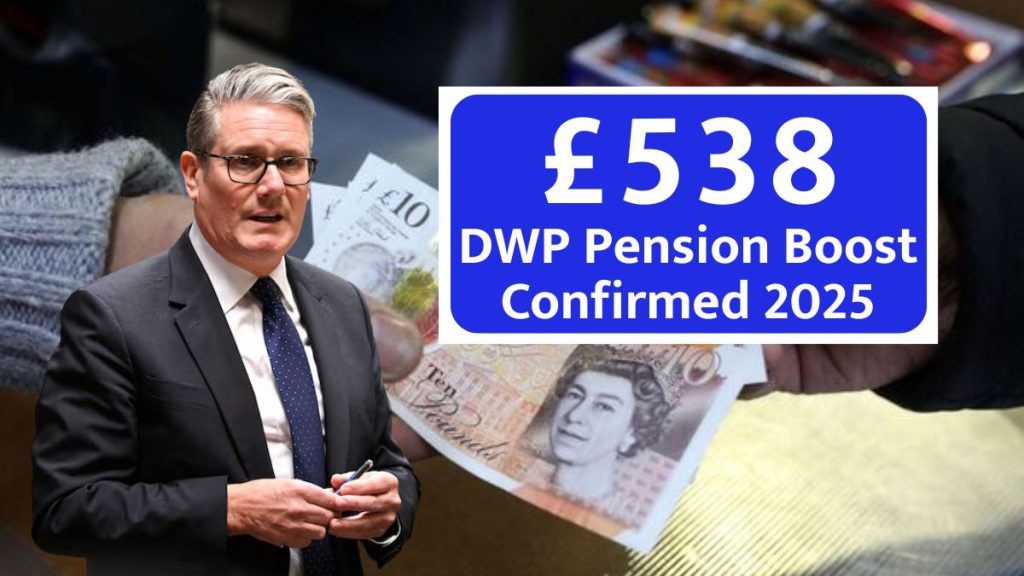The UK Government has confirmed a new HMRC rule starting on 29 September 2025 which could see £300 deducted directly from pensioners’ bank accounts. This announcement has sparked concern among retirees who rely heavily on their pensions for day-to-day living. According to HMRC, the change is designed to streamline tax collection and prevent fraud, but many pensioners are left asking: who will be affected, why is this happening, and how can I prepare?
This article breaks down the details of the rule, explains its purpose, and outlines practical steps to protect your finances.
What the £300 Deduction Actually Means

The £300 figure is not a blanket fine or universal charge. Instead, it refers to a direct deduction method HMRC will use to recover tax discrepancies.
Examples include:
- Overpaid pension tax relief
- Unpaid income tax on State or workplace pensions
- Benefit overpayments linked to pension-related accounts
Previously, HMRC often issued letters or adjusted tax codes. Now, the agency will be able to recover funds directly from bank accounts once notice has been given.
Who Will Be Affected by the Rule
Not all pensioners will face deductions. HMRC will only target individuals with:
- Outstanding tax discrepancies already flagged in their records
- Multiple income sources such as State Pension, workplace pensions, and part-time wages
- Overpayments of Pension Credit or other benefits
If your tax affairs are fully up to date, you are unlikely to be affected. However, pensioners with complex income arrangements should be extra cautious.
Why HMRC Introduced This Change
HMRC has cited several reasons for the update:
- Reducing errors caused by complex pension rules, tax-free lump sums, and shifting thresholds
- Preventing fraud, particularly in benefit payments
- Improving efficiency by collecting owed tax quickly instead of waiting for self-assessments
While efficient for the government, the change highlights why pensioners must keep tax details current and double-check their financial records.
How Pensioners Can Check Their HMRC Status
Before the 29 September deadline, retirees should review their standing with HMRC.
Steps include:
- Log in to your Personal Tax Account via GOV.UK
- Check your tax code and income records
- Look for any outstanding liabilities or repayments
- Contact HMRC by phone if you’re unsure
Financial advisers can also help pensioners review accounts and avoid unexpected deductions.
How to Protect Your Bank Account
To reduce risks:
- Confirm bank details with HMRC and your pension provider
- Keep accurate records of all pension income and benefit statements
- Respond promptly to any HMRC letters or emails
- Negotiate instalment plans if you cannot afford a full deduction
This preparation ensures you won’t be caught off guard when the new rule takes effect.
Financial Planning for the Deduction
Even if you don’t expect to be affected, it is wise to prepare. Retirees should:
- Build a small emergency fund for unexpected deductions
- Ask their bank about temporary overdraft protection
- Use budgeting tools to track monthly cash flow
Planning ahead provides stability and reduces stress in case HMRC initiates recovery.
Rights and Appeals for Pensioners
Pensioners have legal rights if HMRC initiates deductions:
- Advance notice must be given
- You may appeal the decision and request a detailed breakdown
- HMRC must review disputes and may pause deductions during the process
Organisations such as Citizens Advice and pension charities provide free support to help retirees file appeals and contest incorrect deductions.
The Role of Banks
Although HMRC initiates the deductions, banks also play a role:
- Banks must comply with legal requests from HMRC
- Customers should receive notifications of deductions
- Vulnerable customers may be offered extra support
Make sure your mobile banking alerts and contact details are up to date, so you’re notified immediately if money is withdrawn.
Preparing for the 29 September Deadline
This month should be treated as a preparation period for all pensioners. Key steps include:
- Reviewing pension and tax statements
- Checking your HMRC account for discrepancies
- Contacting HMRC directly if unsure
Being proactive now can prevent unexpected shocks when the rule officially begins.
Long-Term Implications for Pensioners
The £300 deduction rule is part of a wider shift in HMRC’s tax collection strategy. Experts believe we may see more direct recovery methods in future, making accurate record-keeping essential.
Pension advisers recommend:
- Annual tax reviews
- Keeping digital copies of all HMRC correspondence
- Monitoring benefit payments for overpayments
This ensures you stay ahead of future changes and maintain financial stability.
FAQs – HMRC £300 Deduction Rule 2025
1. Will all pensioners lose £300 from their bank accounts?
No. Only pensioners with outstanding tax discrepancies or overpayments flagged by HMRC will face deductions.
2. Is the £300 deduction a fine?
No. It is a method of recovering unpaid tax or overpayments, not a penalty.
3. How can I check if I’ll be affected?
Log into your HMRC Personal Tax Account or contact HMRC directly. Reviewing tax codes and benefit statements will show if you owe money.
4. Can I stop HMRC from taking the money?
You cannot stop a lawful deduction, but you can appeal or arrange instalment repayments before the deduction takes place.
5. What should I do if a deduction is made incorrectly?
Immediately contact HMRC to dispute the charge, request a breakdown, and provide evidence. Your bank records and pension statements will support your case.















